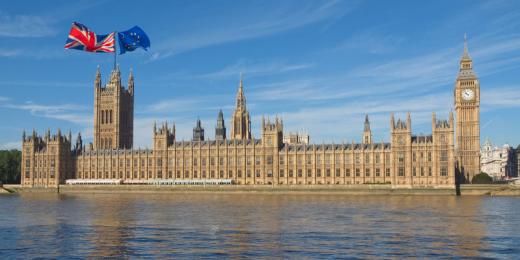R (Millar) v Secretary of State for Exiting the European Union

A Summary of the Decision
The high court delivered a blow to Theresa May’s Government this morning, when it ruled that the Article 50 divorce process for leaving the EU requires a vote by parliament before it can be triggered.
The ruling means the UK government cannot use its prerogative powers to engage Article 50. Instead, the court’s declaration means that parliament must vote beforehand, raising uncertainties over the length of the EU divorce process and whether MPs will push for amendments to any Brexit bill or even block it.
Giving the court’s decision, Lord Justice Thomas said the rights given by parliament in the European Communities Act 1972 could not be taken away by the government — only by parliament.
“In our judgment, the clear and necessary implication from these provisions taken separately and cumulatively is that parliament intended EU rights to have effect in domestic law and that this effect should not be capable of being undone or overridden by action taken by the Crown in exercise of its prerogative powers,” he said.
The decision, which involved some of the best European barristers and solicitors in the country was highly anticipated by Immigration solicitors and the business community.
The judgment
The question before the country's most senior judge Lord Chief Justice, Baron Thomas of Cwmgiedd, Sir Terence Etherton (Master of the Rolls) and Lord Justice Sales was, whether as a matter of UK constitutional law, the Government is entitled to give notice of a decision to leave the EU under Article 50 by exercising the Crown’s prerogative power, without Parliament voting on the decision.
When deciding on the constitutional principles of Brexit, the Court held that Parliament is sovereign and can enact or overturn any law it chooses.
“As an aspect of the sovereignty of Parliament it has been established for hundreds of years that the Crown – i.e. the Government of the day – cannot by exercise of prerogative powers override legislation enacted by Parliament. This principle is of critical importance and sets the context for the general rule on which the Government seeks to rely – that normally the conduct of international relations and the making and unmaking of treaties are taken to be matters falling within the scope of the Crown’s prerogative powers. That general rule exists precisely because the exercise of such prerogative powers has no effect on domestic law, including as laid down by Parliament in legislation”.
The Court went on to say: “In the present case, however, the Government accepts, and indeed positively contends, that if notice is given under Article 50 it will inevitably have the effect of changing domestic law”.
“The central contention of the Government in the present case is that Parliament must be taken to have intended when it enacted the 1972 Act that the Crown would retain its prerogative power to effect a withdrawal from the Community Treaties (now the EU Treaties), and thereby intended that the Crown should have the power to choose whether EU law should continue to have effect in the domestic law of the UK or not.
The Court does not accept the argument put forward by the Government. There is nothing in the text of the 1972 Act to support it. In the judgment of the Court the argument is contrary both to the language used by Parliament in the 1972 Act and to the fundamental constitutional principles of the sovereignty of Parliament and the absence of any entitlement on the part of the Crown to change domestic law by the exercise of its prerogative powers [82-94, 97-104]. The Court expressly accepts the principal argument of the claimants [95-96].
For the reasons set out in the judgment, we decide that the Government does not have power under the Crown’s prerogative to give notice pursuant to Article 50 for the UK to withdraw from the European Union.”
What does this decision mean for the future?
Almost immediately, the Government stated that it will appeal the decision. Permission has been granted for the case to go straight to the Supreme Court, which has set aside time on 7th and 8th December to hear the case. For the first time in its history, all 11 of the Supreme Court justices will sit on the bench to decide on a matter that goes to the heart of the UK’s unwritten constitution.
According to the best Immigration solicitors and constitutional experts who have analysed the decision, it is unlikely that Brexit will be halted. However, if the Supreme Court upholds today’s decision, then the Government could become embroiled in a constitutional crisis that at this stage, it has no idea how to get out of.
As more developments come to light we will keep you posted.
OTS Solicitors is one of the most respected Immigration law firms in London. By making an appointment with one of our Immigration solicitors, you can be assured of receiving some of the best legal advice available in the UK today. If you require any advice regarding Brexit, permanent residence Card application and/or British Citizenship please phone our office on 0203 959 9123.


